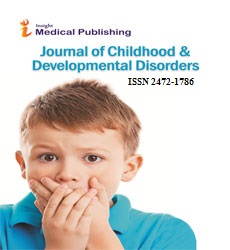Abstract
Systematic Review of Mindfulness Induced Neuroplasticity in Adults: Potential Areas of Interest for the Maturing Adolescent Brain
We present a systematic review of studies documenting neural functional alterations after mindfulness training in adult samples. Adolescence is a critical developmental period characterised by the late maturation of the prefrontal cortex and functional stabilisation, processes that are both genetically led and experience dependent. Thus adolescence could be an opportunity to redress the developmental trajectory. Adjustment problems may evolve into maladaptive behaviours and psychological disorders. This is an important public health concern that justifies investing in adolescent focused research. Mindfulness has received increasing attention over the last thirty years, for its clinical and protective effects. The present review focuses on the wider effects of mindful attention on functional processes. Our results indicate that mindful attention practices are associated with extensive functional plasticity. Reduced activation has been observed in the limbic system and the default mode network. In contrast, increased engagement of executive and attention related areas have been observed in the anterior cingulate cortex, the ventro- and dorso-medial prefrontal cortex. As the limbic system, default mode network and executive functions all undergo major maturation processes in adolescence, research is needed to understand how mindful attention could contribute, to the experience driven plasticity of the emergent functional systems associated to self-referential, socio-emotional stress and higher executive capabilities in adolescents.
Author(s):
Virginie Kirk, Charikleia Fatola and Marina Romero Gonzalez
Abstract | Full-Text | PDF
Share this

Google scholar citation report
Citations : 504
Journal of Childhood & Developmental Disorders received 504 citations as per google scholar report
Abstracted/Indexed in
- Google Scholar
- China National Knowledge Infrastructure (CNKI)
- Directory of Research Journal Indexing (DRJI)
- WorldCat
- Publons
- Geneva Foundation for Medical Education and Research
- Secret Search Engine Labs
- Euro Pub
Open Access Journals
- Aquaculture & Veterinary Science
- Chemistry & Chemical Sciences
- Clinical Sciences
- Engineering
- General Science
- Genetics & Molecular Biology
- Health Care & Nursing
- Immunology & Microbiology
- Materials Science
- Mathematics & Physics
- Medical Sciences
- Neurology & Psychiatry
- Oncology & Cancer Science
- Pharmaceutical Sciences

